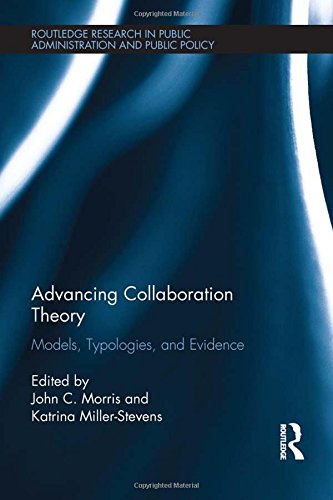

Most ebook files are in PDF format, so you can easily read them using various software such as Foxit Reader or directly on the Google Chrome browser.
Some ebook files are released by publishers in other formats such as .awz, .mobi, .epub, .fb2, etc. You may need to install specific software to read these formats on mobile/PC, such as Calibre.
Please read the tutorial at this link: https://ebookbell.com/faq
We offer FREE conversion to the popular formats you request; however, this may take some time. Therefore, right after payment, please email us, and we will try to provide the service as quickly as possible.
For some exceptional file formats or broken links (if any), please refrain from opening any disputes. Instead, email us first, and we will try to assist within a maximum of 6 hours.
EbookBell Team

5.0
18 reviewsThe term collaboration is widely used but not clearly understood or operationalized. However, collaboration is playing an increasingly important role between and across public, nonprofit, and for-profit sectors. Collaboration has become a hallmark in both intragovernmental and intergovernmental relationships. As collaboration scholarship rapidly emerges, it diverges into several directions, resulting in confusion about what collaboration is and what it can be used to accomplish. This book provides much needed insight into existing ideas and theories of collaboration, advancing a revised theoretical model and accompanying typologies that further our understanding of collaborative processes within the public sector.
Organized into three parts, each chapter presents a different theoretical approach to public problems, valuing the collective insights that result from honoring many individual perspectives. Case studies in collaboration, split across three levels of government, offer additional perspectives on unanswered questions in the literature. Contributions are made by authors from a variety of backgrounds, including an attorney, a career educator, a federal executive, a human resource administrator, a police officer, a self-employed entrepreneur, as well as scholars of public administration and public policy. Drawing upon the individual experiences offered by these perspectives, the book emphasizes the commonalities of collaboration. It is from this common ground, the shared experiences forged among seemingly disparate interactions that advances in collaboration theory arise.
Advancing Collaboration Theory offers a unique compilation of collaborative models and typologies that enhance the existing understanding of public sector collaboration.